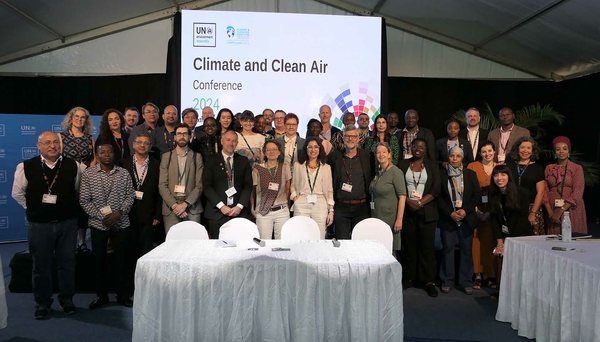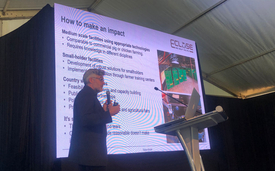News Detail
Eawag joins the UNEP’s Climate and Clean Air Coalition
February 29, 2024 |
The Climate and Clean Air Coalition was founded in February 2012. It is a leading, global, multi-stakeholder partnership that brings state, inter-state and non-state organisations together to manage the challenges of climate change and air pollution. The overriding goal of the Coalition is to minimise short-lived climate pollutants such as soot, methane and fluorohydrocarbons. This is intended to contribute towards the global efforts to achieve the goals set out in the Paris Agreement to limit the increase in temperature to 1.5 to 2 C, as well as to improve harvests and minimise the health and economic effects of air pollution.
Switzerland was one of the first state partners to join the Coalition as early as 2013. At the annual meeting of the UNEP from 21 to 23 February 2024 in Nairobi, the Coalition added the aquatic research institute Eawag as a non-state partner. “Eawag supports the partnership with applied research in international development cooperation,” says Christian Zurbrügg, group leader in the Eawag’s Sandec research department. “We are developing new findings in the area of sanitation and waste disposal as well as supporting partners from politics and practice with the implementation of innovative strategies and measures for reducing short-lived climate pollutants.”
Stefan Diener, until recently a researcher at Sandec who co-founded the Eawag spin-off Eclose in 2021, presented technology regarding the use of the black soldier fly for biogenic waste treatment at the CCAC conference on 23 February. (Photo: CCAC)
The Eawag research department Sandec is developing, for example, new methods for decentralised sanitary systems and for the recycling of biogenic waste using the black soldier fly (Hermetia illucens) and measuring its potential for reducing greenhouse gas emissions. As part of the Technology & Economic Assessment Panel of the CCAC, Eawag assisted with the report “Driving Innovation and Technology in the Waste Sector” on promising, innovative and under-financed measures to reduce short-lived climate pollutants
Cover picture: Leading global decision makers from politics and practice came together to discuss urgent questions about the environment and air quality at the Climate and Clean Air Conference, which took place in Nairobi from 21 to 23 February 2024 within the framework of the sixth session of the United Nations Environment Assembly. (Photo: CCAC)


